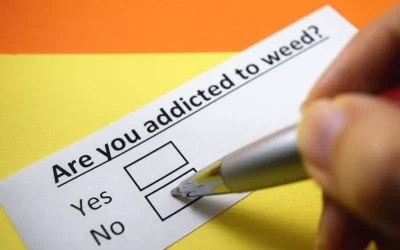Content
- Steps to Avoid Deep Vein Thrombosis
- What Does Alcohol Thinning The Blood Mean For Drinkers?
- Confidential Contact Form
- Do Drink Plenty of Water While Taveling
- Lifestyle Tips for Life After Blood Clots
- Top Reads in Health Education
- Top doctors in ,
- Why is it a risk?
- Is Alcohol A Blood Thinner And Why It Matters
Call your doctor and go to the hospital immediately if you have had a fall or hit your head, even if you are not bleeding. For example, if you fall and hit your head, bleeding can occur inside your skull. Or, if you hurt your arm during a fall and then notice a large purple bruise, this means you are bleeding under your skin.
It may also cause a person to develop anxiety or depression, learning and memory problems, social problems (lost productivity or employment), or have family problems. If you take a blood thinner, be sure to follow your health care provider’s advice on dosing. Ask about foods and other medications — including drugs you buy without a prescription and herbal supplements https://ecosoberhouse.com/ — that can interfere with how the blood thinner works. Your healthcare provider also prescribes you the correct dosage for you depending on a number of factors. The effects of alcohol may be similar to blood thinners, but you should not replace your medication with alcohol. Stomach bleeding is often caused by many different factors, including alcohol consumption.
Steps to Avoid Deep Vein Thrombosis
That’s people in general though, when it comes to alcohol thinning your blood, the experts aren’t split. The first thing you should know about alcohol is that its specific blood thinners and alcohol effects, and how severe those effects are, is highly individual. You will have a different reaction to alcohol than your parents, your best friend, or even your siblings.
How much alcohol is OK with warfarin?
Can I drink alcohol while taking warfarin? Talk with your provider about if and how much alcohol you can drink. If you do drink alcohol, it is recommended to not have more than 2 drinks (can of beer, glass of wine, shot of spirit) per day for men or 1 drink per day for women.
If you are taking a blood thinner, the risk of bleeding is even greater. Alcohol can interact with certain medications to increase their potency, leading to dangerous side effects. Additionally, alcohol acts as a blood thinner and increases the risk of internal bleeding.
What Does Alcohol Thinning The Blood Mean For Drinkers?
While it may seem like harmless fun, this combination can cause serious health problems. Combining these two drugs has been known to lead to internal bleeding, such as bleeding in the stomach and intestines, or even bleeding in the brain. If you are taking a blood thinner and have been prescribed it by your doctor, there are some critical things you need to know before drinking alcohol again.
When you have a blood clot, it can lead to strokes, heart attacks, impaired circulation in the lungs, and other complications resulting from the blockage. In fact, most blood-thinning medications will specifically advise against mixing them with alcohol. Blood thinners can be dangerous, increasing your risk of severe bleeding during an accident or with an injury. Their use must be carefully monitored to ensure that the blood does not become too thin. The North American Thrombosis Forum (NATF) is a 501(c)3 nonprofit organization incorporated by the Commonwealth of Massachusetts.
Confidential Contact Form
There’s more than one kind of blood thinner, and they work in different pathways within the body. The lowest risk of CAD deaths was found in people consuming approximately one to two alcoholic equivalents. A more neutral effect was found with stroke deaths and non-fatal strokes.

So, to sum up, a moderate amount of drinking reduces clotting but cannot be substituted for prescribed anticoagulants. Simultaneous blood thinners and alcohol use can cause internal bleeding in heavy or regular drinkers due to their synergistic effects. People taking anticoagulants should reduce ethanol consumption for the sake of their health or contact a rehabilitation center in case of an addiction to ethanol. They should also be on the lookout for signs of internal bleeding. Alcoholics with anticoagulant prescriptions should actively seek help in rehab institutions.
These medications are intended to treat blood clots in people who have them or reduce the risk of them forming. Blood thinners do not actually reduce the size of existing clots, but they can enhance the body’s natural process for eliminating unhealthy blood clots. Blood thinners are medicines that prevent blood clots from forming.
- While a blood thinner is helpful for patients who have a blood clot, or are at risk for developing a blood clot, there are key things to be aware of when using a blood thinner.
- As a result, heavy drinking increases the risk of experience cardiovascular-related diseases such as heart attack and stroke.
- Sadly, alcohol addiction is one of the most common forms of addiction.
- Our Recovery Advocates are ready to answer your questions about addiction treatment and help you start your recovery.